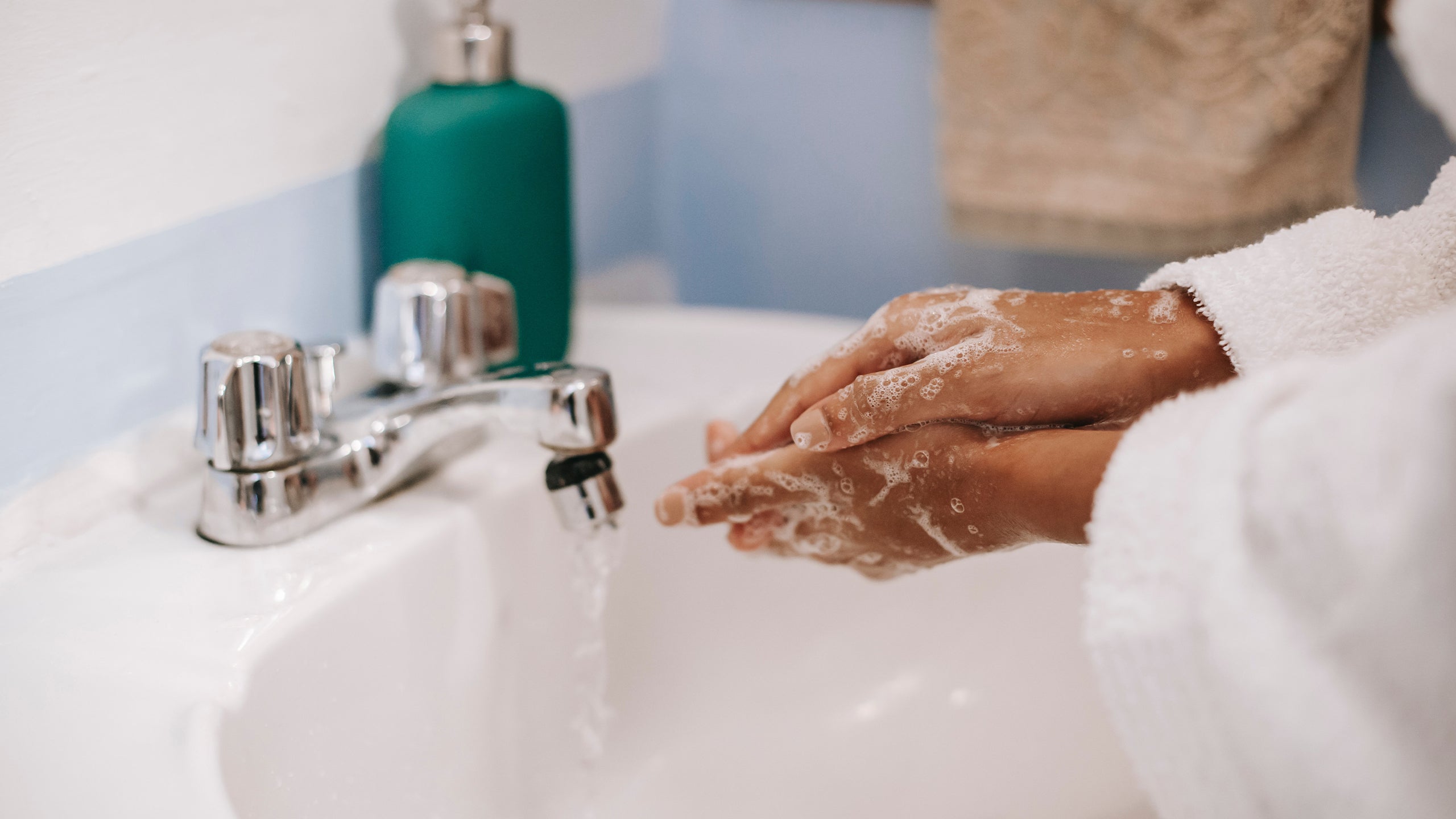Thousands of people search Google every month to find the best soap for dry skin, the best soap for oily skin, and the best soap for every skin type in between.
If you’re one of those people wondering about the best soap for your sensitive, dry, or oily skin, we’re here to tell you that the best soap for your skin type… is actually no soap!
We know this may go against everything you currently know and believe about personal hygiene and skin care, so give us a few minutes of your time to explain how soap affects your skin — and what you should replace soap with.
Why No Soap Is the Best Soap for Your Skin Type
While each bar of soap is formulated and created differently, there are some similarities between almost all soaps that make them the less than ideal option for your skin health.
Soap Often Contains Harmful Ingredients
Babylonians, Mesopotamians, Egyptians, ancient Greeks, and the ancient Romans have been making soap since 2800 BC.
Historically, soaps were made with animal or vegetable oils and salts. Today, soap has changed a lot.
When you look at the ingredients label on most soap bars, you find far more than two to three natural ingredients; you find a paragraph of ingredients you don’t know how to pronounce!
Most conventional soaps available on the market today contain artificial fragrances, parabens and sulfates, dyes, and other harsh chemicals.
Many of these chemical ingredients can be endocrine disruptors, affecting hormone levels in the body, and can also be carcinogenic.
Your skin is the largest organ in the body, and it’s your body’s first line of defense against toxins. That’s why applying these toxic chemicals directly onto the skin can be harmful to your long-term wellness.
Many ingredients in your skincare products can be absorbed into the body. With daily use over time, this absorption can lead to a build-up of toxins and negative health effects.
Soaps Can Make Your Skin Dry or Oily
Most soaps have a pH within the range of 9–10. Healthy skin, however, typically has a pH range of 5.4–5.9.
Because soaps have a much higher pH than normal skin, they can be very drying. Washing with soap regularly strips the skin of its natural and healthy oils and can disrupt the delicate balance of the skin microbiome.
If you’re struggling with eczema or dry patches of skin, use mild, non-soap cleansers to protect the natural oils on your skin and that respect your natural skin microbiome. In addition, if you minimize the frequency of cleansing you will further protect your skin’s natural oils and skin microbiome that naturally work to keep your skin healthy.
The high pH and stripping effect of soap don’t only affect those with dry skin, though. When you use a drying bar soap on oily skin, it can still make your skin oilier.
When your skin has enough of its natural, protective oils covering it, that’s a signal to your skin that it can stop producing sebum (or oil). That means when the skin is stripped of those natural oils, it doesn’t know it’s already producing enough oil… and will create more! And that’s the opposite of what you want when trying to manage oily skin.
Soaps Can Cause Imbalances in Your Skin Microbiome
Just like your gut, your skin has a microbiome, sometimes also referred to as the skin flora, that houses trillions of microorganisms, including bacteria, fungi, and more.
While bacteria often paints the image of bad creepy crawlies, some bacteria are good for you! Both good and bad bacteria live on your skin surface. It’s only when the bad bacteria begin to overcrowd the good microorganisms that the bacteria on your skin become problematic.
Over cleansing, and the harsh ingredients in your soap, strip the skin of healthy oil and healthy bacteria your body needs to protect itself from foreign invaders.
Your skin microbiome needs to maintain a delicate balance; that’s why less is more when it comes to your skin cleansing routine.
The Best Alternative to Soap, No Matter Your Skin Type
By now, you’re probably asking yourself, “How do I make sure I don’t smell without soap?!” We’re not recommending you quit showering or avoid all cleansers. In fact, there are several cleansers and washes that nourish and protect your skin better than soap.
Like with soap, however, read the labels on cleansers and body washes because they just as often contain harmful additives.
One of the benefits of cleansers over soaps is they don’t contain sodium, and they often contain moisturizing ingredients like glycerin to help soothe dry or sensitive skin.
Gladskin’s Body Wash for Sensitive Skin is safely formulated for all skin types with just four ingredients to gently cleanse and hydrate.
We don’t use preservatives, fragrances, or harsh soaps found in typical body washes that disrupt skin microbiome balance and lead to dryness or oiliness.
Conclusion
Whether you’re dealing with oily or dry skin, you don’t need a personalized soap for your skin type because an imbalance in the skin microbiome contributes to both of these skin struggles.
The best soap, no matter your skin type, is no soap! Instead, opt for a gentle, non-soap cleanser that skips all the harmful additives to protect the delicate balance of your skin microbiome.
For additional support to help rebalance your skin microbiome and manage eczema-prone skin, try our Gladskin Eczema Cream.

